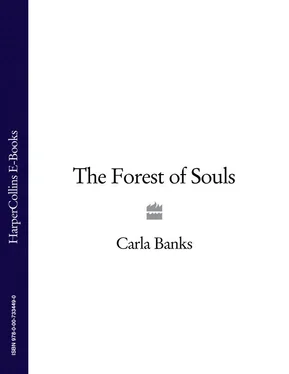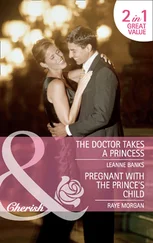Faith woke suddenly, sitting up in bed, the quilt that had tangled round her as she slept sliding on to the floor. For a moment she didn’t know where she was, then the confusion cleared. She was in her house in Glossop, where she had lived for just a month. It was still dark. She could see the square of the skylight above her, and the silhouettes of the bedroom furniture emerging from the gloom. She switched on the lamp, flooding the room with warmth and colour. Dreams of her childhood faded from her mind.
Her bedroom was an attic, with slanting walls and odd nooks and corners. It was the first room she’d decorated once she’d bought the house, stripping off the dingy wallpaper and painting everything white, adding colour with throws and blinds so that even on this dark winter morning, the rain beating on the skylight above her head, the room looked warm and welcoming.
She went down the winding staircase to the bathroom. Her head felt muzzy with sleep as she stood under the shower, so she turned the temperature down and woke herself up with a blast of cold water. She wrapped herself in a towel, shivering as she went quickly back up the stairs. A spatter of rain blew across the window.
It was the start of her second week in her new job at the Centre for European Studies at the University of Manchester. She had recently been appointed as a senior research assistant to the director, the eminent historian and political philosopher Antoni Yevanov. It had been a hotly contested post that she had won after a gruelling three-day interview. She knew that a lot of people were surprised when she was appointed–they thought that at thirty-two, she was too young, that she didn’t yet have the experience–and the professional knives were out.
She dried her hair. It had grown over the summer, and it hung heavy and dark to her shoulders, so she pulled it off her face and secured it with a clip. She hesitated as she tried to decide what to wear. The day was going to be bitty–she had a meeting first thing, she had an article to complete for an academic journal about the role of statistical analysis in historical research, and there was a departmental meeting at four, which would be the first she had attended at the Centre. She knew the importance of first impressions.
After a moment’s thought, she chose a cream skirt and a tailored jacket. She’d be walking a lot today–the corridors of the Centre, the campus–so she opted for shoes with a low heel. She was tall enough to get away with it.
It seemed strange to be back in Manchester. Faith had spent her childhood in the city, brought up by her grandfather who lived in the affluent suburb of Altrincham, but there had been no sentimentality in her decision to return–the opportunity of working with Antoni Yevanov had been incentive enough.
Her attachments to the city were simply a bonus. It was good to be near her grandfather again, and she was working with her oldest friend, Helen Kovacs. The thought of Helen brought a frown to Faith’s face as she packed her work bag. Helen was still struggling in the early stages of her academic career–she had left academia after she had graduated, and had only recently returned and completed her PhD. It was hard in the current climate for a woman in her thirties with children to compete against the unencumbered twenty-three-year-olds who were applying for post-doctoral appointments now. Faith’s meeting this morning was with Helen, and it would be the first time she’d had to act in her position as Helen’s line manager.
Faith and Helen had met at the prestigious grammar school they both attended. It prided itself on its academic excellence and appealed to parents who wanted their children to have a traditional education. The uniform they wore was supposed to iron out any differences of background that the children brought to the school, but the adolescent jungle of status and conformity operated there just the same.
Faith, who lived with her immigrant grandfather and had no visible parents, was an object of suspicion. Helen, whose parents were working class and who lived on a modern housing estate in Salford, was a complete outsider. Her father was a builder who was earning just enough to buy his daughter what he believed would be the best education for her. Helen’s accent was wrong, her clothes were wrong, she lived in the wrong place and had the wrong parents. The pack turned on her.
The two girls, with the well-honed survival instincts that six years in the school system had given them, had drawn together. They were both bright, they were both athletic, and Faith soon discovered that Helen had a dry wit and a talent for sharp mockery that matched her own. They had seen off their tormentors and established a friendship that had endured into adulthood. They had gone to Oxford together, shared a flat through their student years, seen each other through the ecstasy of first relationships and the subsequent heartbreak. And even though their lives had gone down different paths since then, they had stayed close.
Faith went into the kitchen and put some bread in the toaster. There was coffee left from the night before. She poured some into a mug and put it in the microwave. As she watched the light of the LED, her phone rang. She checked the number. It was her mother. Katya Lange rarely phoned her daughter. Their contacts tended to be Christmas and birthdays and the occasional good-will call that Katya was hardly likely to make at 7.45 in the morning.
Puzzled, she answered it. ‘Hello?’
‘I’m glad I caught you.’ Katya’s voice was brisk. ‘Listen, Faith, there’s a bit of a problem with Marek.’
‘What is it? Is he ill?’ Her grandfather, Marek Lange, was in his eighties. He was stubbornly independent and would accept almost no help, though Faith had tried often enough to persuade him.
‘Nothing like that. You’d be the first to hear. It’s this journalist…’
Faith sighed. She really didn’t want to have this conversation again. A journalist, a man called Jake Denbigh, wanted to interview Grandpapa for a series of articles he was writing about changing attitudes to refugees. Marek Lange, a Polish refugee who had fought on the side of the Allies in the last war, had attracted his interest.
The interview seemed a valid enough enterprise to Faith. She’d read some of Denbigh’s articles and she’d heard him once or twice on late-night discussion programmes on Radio 4. As far as Faith could see, the interview would be something her grandfather would enjoy. He was an opinionated man, and would relish the chance to express his views. She thought it would add a bit of variety to a life that was becoming more and more circumscribed by old age, but Katya had been against it from the start.
‘I told you what I think,’ Faith said now. ‘It’s up to him. It’s nothing to do with me.’
‘It’s more urgent than that,’ Katya said. ‘Marek’s agreed to do the interview. It’s happening this morning.’
‘Well–good for him.’ Her toast was done. She hunted round for the spread.
‘I’m not so sure. I’ve had a bad feeling about this from the start. I don’t trust this Denbigh man, so I looked some stuff up. A few months ago, he got involved in a witch-hunt in Blackburn about a man they said was an ex-Nazi. It got nasty.’
‘Oh.’ That gave Faith pause for thought. Her grandfather had escaped from Nazi-occupied Poland to join the Polish Free Forces in England in 1943. He had arrived alone, his family and his past lost in the chaos behind him. All that was left were the stories he used to tell her when she was a child, stories about his own childhood, a childhood that had been obliterated as surely as the cities of Europe had been razed in the final destruction of that conflict. His war years in occupied Europe were something he never spoke of, ever.
Читать дальше












